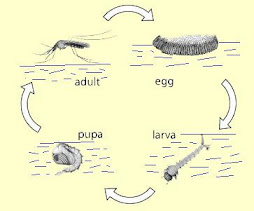Coconut oil traditional cooking processed is good for your health.
We are happy to provide our home-processed (traditional method) COCONUT OIL FOR SALE.
If interested please contact
tel: 6016-6280293 LLoyd Wong
As shown below is the information regarding the benefit ofcoconut oil.
Coconut oil is nature's richest source of these healthy MCFAs.
By contrast, most common vegetable or seed oils are comprised of long chain fatty acids (LCFAs), also known as long-chain triglycerides or LCTs.
There are several reasons to explain why these long-chain fatty acids are not as healthy for you as the MCFAs in coconut oil:
LCFAs are difficult for the body to break down -- they must be packaged with lipoproteins or carrier proteins and require special enzymes for digestion.
LCFAs put more strain on the pancreas, the liver and the entire digestive system.
LCFAs are predominantly stored in the body as fat. (That's why most people buy into the myth that fats are automatically "fattening".)
LCFAs can be deposited within arteries in lipid forms such as cholesterol.
On the other hand, however, the MCFAs in coconut oil are more health-promoting, because:
MCFAs are smaller. They permeate cell membranes easily, and do not require lipoproteins or special enzymes to be utilized effectively by your body.
MCFAs are easily digested, thus putting less strain on your digestive system. This is especially important for those of you with digestive or metabolic concerns.
MCFAs are sent directly to your liver, where they are immediately converted into energy rather than being stored as fat.
MCFAs in coconut oil can actually help stimulate your body's metabolism, leading to weight loss.
Coconut oil has often been compared to carbohydrates in its ability to be "burned" for energy. However, since insulin is not involved in the process of digesting the MCFAs in coconut oil, you won't get those carb-related spikes in your blood sugar level. This is especially good news for those of you concerned about maintaining normal blood sugar levels.
In fact, the ability of MCFAs to be easily digested, to help stimulate the metabolism and be turned into energy has entered the sports arena. Several studies have now shown that MCFAs enhance physical or athletic performance.
Additionally, research has demonstrated that, due to its metabolic effect, coconut oil increases the activity of the thyroid. And you've probably heard that a sluggish thyroid is one reason why some people are unable to lose weight, no matter what they do.
Besides weight loss, there are other advantages to boosting your metabolic rate. Your healing process accelerates. Cell regeneration increases to replace old cells, and your immune system functions better overall.
So, by changing the fats in your diet from the unsaturated long-chain fatty acids found in vegetable or seed oils to the MCFAs in coconut oil, along with following an exercise plan, you may find yourself gradually losing those unnecessary pounds.The reasons are simple:
The long-chain fats nearly always go to fat storage, while the MCFAs are burned for energy
Since coconut oil helps to stimulate your metabolism, you may burn more calories each day, helping to accelerate weight loss (and probably your activity and energy level, too)
Coconut oil is comprised of medium-chain fatty acids (MCFAs), also called medium-chain triglycerides or MCTs.
Coconut oil is nature's richest source of these healthy MCFAs.
By contrast, most common vegetable or seed oils are comprised of long chain fatty acids (LCFAs), also known as long-chain triglycerides or LCTs.
There are several reasons to explain why these long-chain fatty acids are not as healthy for you as the MCFAs in coconut oil:
LCFAs are difficult for the body to break down -- they must be packaged with lipoproteins or carrier proteins and require special enzymes for digestion.
LCFAs put more strain on the pancreas, the liver and the entire digestive system.
LCFAs are predominantly stored in the body as fat. (That's why most people buy into the myth that fats are automatically "fattening".)
LCFAs can be deposited within arteries in lipid forms such as cholesterol.
On the other hand, however, the MCFAs in coconut oil are more health-promoting, because:
MCFAs are smaller. They permeate cell membranes easily, and do not require lipoproteins or special enzymes to be utilized effectively by your body.
MCFAs are easily digested, thus putting less strain on your digestive system. This is especially important for those of you with digestive or metabolic concerns.
MCFAs are sent directly to your liver, where they are immediately converted into energy rather than being stored as fat.
MCFAs in coconut oil can actually help stimulate your body's metabolism, leading to weight loss
The media reported studies of how tropical coconut oils were laden with artery-clogging saturated fats. What was left out of these reports was the fact that the coconut oil used in the studies was not the virgin oil used for centuries but hydrogenated coconut oil. We have since learned it's the hydrogenation - artificially adding a hydrogen molecule to oils in order to make them shelf-stable - that's the problem, not the coconut oil itself. Hydrogenated soy, corn, and canola oils - loaded with dangerous trans-fats and processed with toxic hexane solvents - are routinely added to packaged foods. Hydrogenation fattened corporate profits and American waistlines, and is now linked with trans-fats and associated heart disease.
mosquito control

Importance of water surface during egg-larva-pupa stages
Thursday, August 20, 2009
Subscribe to:
Comments (Atom)